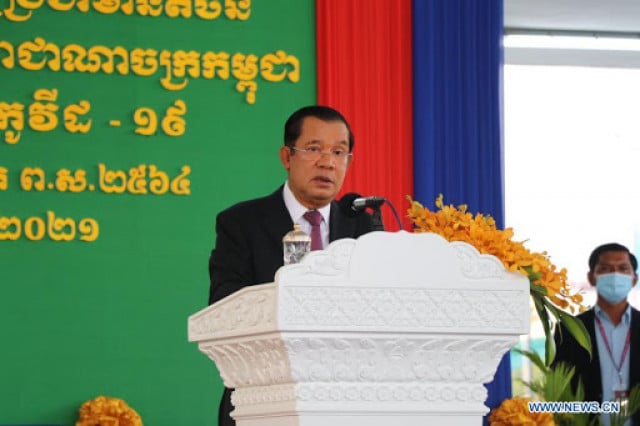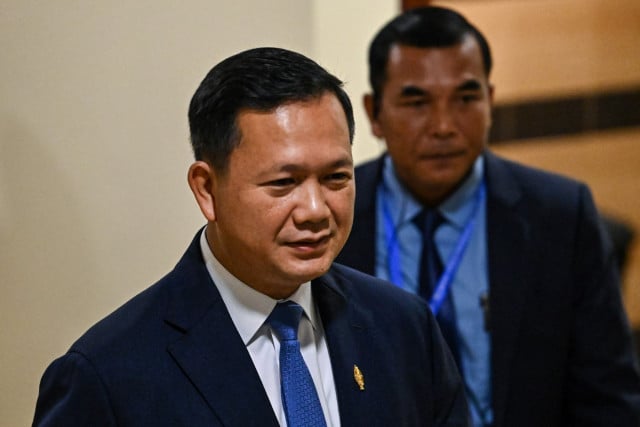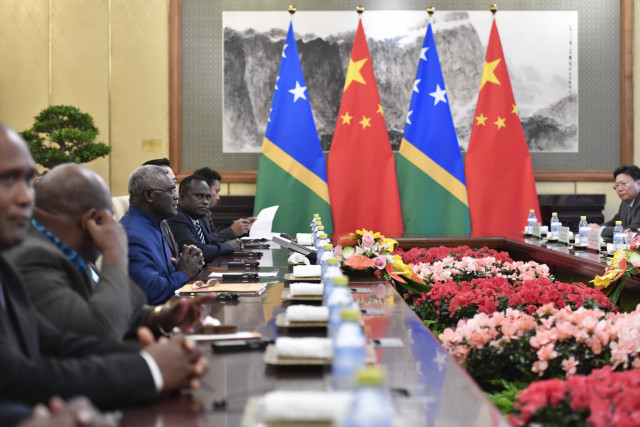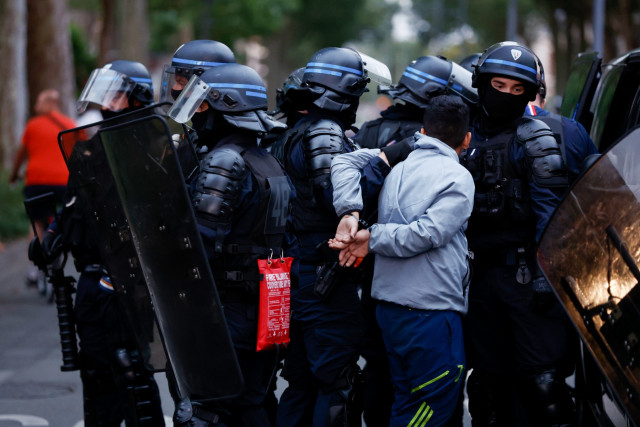Cambodia’s Third Community Outbreak Sees Biggest Surge in Cases Yet

- Phoung Vantha
- March 9, 2021 3:33 AM
Prime Minister Hun Sen urged the Senate to rush through a new law granting the government the power to punish those who violate measures put in place to curb the spread of COVID-19.
UPDATE: This story has been amended in light of new information provided by the Ministry of Health on March 9, 2021.
PHNOM PENH--Police officers, civil servants, artists and members of the public made up the 49 new COVID-19 cases reported by the government on March 8—the largest daily increase since the Feb. 20 outbreak began. Of the 49 cases, one was imported, the other 48 are linked to the community outbreak.
According to the Health Ministry, who released more information on March 9, 23 new COVID-19 cases were found in Phnom Penh, while 12 more were found in Sihanoukville, 11 in Prey Veng Province and two in Kandal Province.
The cases in Prey Veng are believed to be linked to a doctor who contracted COVID-19.
Meanwhile the imported case involved a 50-year-old Libyan man who arrived in Cambodia on March 7 having flown from South Korea. The other 96 passengers aboard his plane have been placed in a quarantine center in Phnom Penh.
The Ministry of Health also noted that, as of March 8, a total of 77,963 people been vaccinated against COVID-19 on a voluntary basis.
Another 21 people have recovered, including 20 of those who caught COVID-19 in relation to the Feb. 20 community outbreak. This leaves 521 active cases of the virus in Cambodia, where 1,060 cases have been recorded in total and 538 people have been discharged from hospital following treatment for COVID-19.
The continued spread of the virus prompted Prime Minister Hun Sen to warn against overcrowding at workplaces and non-essential travel on the evening of March 8, adding that 549 people had since contracted COVID-19 in relation to the Feb. 20 community outbreak.
Hun Sen urged the Senate to rush through the draft Law on Measures to Prevent the Spread of COVID-19 and Other Deadly Infectious Diseases in light of the increasing number of cases.
“I request Say Chhum, president of the Senate, to find a possible way to pass the new law, which has been approved by the National Assembly,” he said. “This law is urgently needed. We cannot apply State of Emergency laws for this situation, but we need governing laws related to COVID-19 and other deadly diseases.”
The draft law currently provides new powers to the government, including the ability to enforce travel bans within the country, the prohibition of meetings and closure of workplaces, as well as closing down places that become COVID-19 hotspots and banning certain commercial services if they’re found to be a source of transmission.
Companies that don’t cooperate with the law can expect to lose their business license, but the draft law also appears to codify punishments for escaping quarantine facilities and avoiding COVID-19 treatment.
Leaving quarantine early can be punished by up to three years in prison and fined up to 10 million riel—almost $2,500—while evading treatment for COVID-19 would be punishable by as many as 10 years in prison and a maximum fine of $5,000.
Intentionally spreading COVID-19 would, under the law if passed, lead to a maximum of 20 years behind bars. Failure to comply with administrative measures to combat COVID-19 and people accused of obstructing the implementation of these measures could face between two and five years in prison, along with a fine of up to $5,000.
On top of rushing this law through the Senate, Hun Sen called on government ministries, state institutions and private companies to reduce staffing, keeping only a small number of people in the office and reducing the number of people on the roads.
“Suspend all unnecessary gatherings,” he added, but noted that markets and factories will not be closed yet—although he called for increased vigilance and health measures, including temperature checks, mandatory mask-wearing and sanitization.















